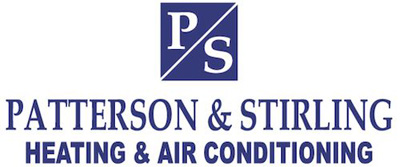
If you want a fulfilling, successful career, check out a career in heating, ventilation and air conditioning. HVAC is an excellent place to start, according to the U.S. Bureau of Labor Statistics, which predicts additional industry growth of 13 percent by 2028.
It's easy to see why these careers are continuing to grow. One involves homeowners using government tax credits to upgrade to more energy-efficient comfort systems. It's also important to consider R-22 Freon® coolant, which impacts older equipment. Finally, there’s the dynamic real estate market as well as a property shortage that’s driven an increase in new construction homes.
One of the most in-demand careers is working as an HVAC technician. Learn the ins and outs of the HVAC technician's daily schedule, how to become one and about how much you can expect to make.
What Is an HVAC Technician?
A HVAC technician possesses the knowledge and skills to service heating and cooling systems. Many technicians are skilled with both residential and commercial equipment. And, most important, you’ll learn a great deal about:
- Air conditioners
- Furnaces
- Mini-splits and heat pumps
- Thermostats and home zoning
- Indoor air quality systems including air filters and air purification systems
Some are HVAC-R technicians, which means they also work with refrigeration.
Is There a Shortage of HVAC Technicians?
Experienced HVAC technicians are increasingly sought after because of shrinking labor force within the industry. There are several reasons for this discrepancy, like a higher rate of retirement and competition from other industries. It's also more likely for young people to start pursuing college degrees as opposed to a licensed trade like HVAC.
Is HVAC a Hard Career?
While HVAC can be physically demanding, it can still be quite gratifying. As a technician you’ll need to be able to:
- Work in awkward settings, like tight or messy spaces.
- Work in inclement weather since HVAC systems are usually outdoors.
- Work evenings, weekends and overtime around peak demand.
A stubborn falsehood about HVAC is that it’s a blue-collar career. In reality, you need an extensive skill set, specialized education and continuous recertification.
It’s an excellent first career if you prefer to:
- Minimize student debt.
- Avoid working at a desk or in an office.
- Have job security since HVAC positions can't be outsourced.
- Become your own boss and own your own successful business.
Is HVAC a Stressful Job?
Any job can be stressful. HVAC technicians service complex equipment and will occasionally have to endure cramped or uncomfortable working conditions. The proper experience and tools can help address any concerns. Additionally, paid training and a stable workload help both installers and technicians avoid some of the most common reasons for work-related stress.
Is HVAC Hard on Your Body?
Moving heavy items and performing repetitive motions are two common reasons HVAC can be physically demanding. Getting to specialized types of equipment can be tiring. HVAC work can be very physical, and you may benefit from a healthy diet and exercise regimen to remain as healthy as possible.
Is HVAC a Recession-Proof Job?
While there isn't a job that's immune to a recession, HVAC is consistently avoiding the worst of economic downturns due to the essential nature of heating and cooling equipment. Repairs and installation will always be required, which means professionals in HVAC can often find work across the country.
Is HVAC a Good Career for the Future?
As climate control technology continues to evolve, professional servicing will become even more important. Newer models of heating and cooling systems use less energy or produce it from renewable sources like solar and wind. Greener HVAC equipment will continue to expand, as will the need for competent HVAC professionals.
How to Become an HVAC Technician
To learn everything you need to become an HVAC technician, you’ll need a high school diploma or GED on top of technical training. Other, more specialized (and higher paying) HVAC careers typically need additional education or certifications.
You can become certified by signing up for classes at a community college or trade school. How much time is needed to become an HVAC technician relies on the program, which is most often around six months to two years. An HVAC company will sometimes also require NATE certification. An acronym for North American Technician Excellence, this key accreditation expands your technical knowledge to ensure the highest quality services.
While some aspects of the job can be learned on your own, a proper education means a combination of classroom programs with on-site training. At the same time, HVAC careers don't involve complex math. While you'll need to know some basic math, most of the HVAC professionals’ skill set relies on critical thinking, for identifying problems and ensure quality installation.
Career Explorer reports that having experience with things like tablets, electronics and troubleshooting will be vital as equipment becomes capable of even more.
Another benefit of working in HVAC is little to no student debt.
According to Midwest Technical Institute, enrolling in a technical or trade school generally costs approximately $15,000. A community college is usually around $5,000 every year. By comparison, the standard student debt for a bachelor’s degree is $25,921.
Your Day-to-Day Schedule as an HVAC Technician
A typical workday may vary on the work site as well as your specific skill set. If you primarily offer repair services, you may work early, late or be on call throughout the day. For projects more relevant to new construction, you will be more likely to keep to a set schedule during normal business hours.
As a technician, your 'office' is actually all the properties you visit to complete repair, maintenance or installation work. Some jobs may need more time and resources than others, so the number of calls each day can fluctuate.
As stated previously, you should expect the occasional job in severe weather as well as in dirty or cramped spaces. For roles assisting customers, strong customer service skills are always useful.
Is a Career in HVAC Profitable? Average Salary for HVAC Technicians and Other HVAC Careers
With the constant growth in HVAC careers, your salary should reflect that. The national average salary for an HVAC technician is $49,242, according to ZipRecruiter. Top earners make between $56,600 and $68,000. However, your salary may be dependent on the area's average wages and its cost of living. HVAC techs with enough experience to work in management in a high-paying state could earn a salary as high as six figures.
Along with starting your own business, there are several other ways to advance your career. These include:
- HVAC manager, $72,515 average salary
- HVAC service manager, $71,176 average salary
Types of HVAC with the Highest Salaries
It's easy to specialize in something with a career in the HVAC industry, and continuing education and certification opportunities open doors for niche positions with great salaries. For example, master engineers who can manage projects and design custom HVAC systems could be eligible for salaries as high as six figures. Larger salaries are also more common when working with advanced equipment like commercial HVAC systems, geothermal heat pumps or radiant in-floor heating.
What States Need HVAC Workers the Most
HVAC technicians are in high demand across the United States, but especially so in states like Florida, California, Texas, New York and Illinois. According to hvacclasses.org, these states employ the most HVAC workers and are experiencing major construction growth. Here’s why:
- Florida: Hurricanes, education and healthcare facilities.
- California: Wildfires, transportation, energy and utility projects.
- Texas: Hurricanes, energy, utility and other infrastructure upgrades.
- New York: Residential and infrastructure updates.
- Illinois: Companies relocating to the Chicago area.
Where HVAC Technicians Will Be in High Demand in the Future
Projections Central, who develops long-term occupational projections, expects these states to have the greatest demand for technicians by 2028:
- Utah, 31.1%
- Colorado, 29.7%
- Nevada, 27.9%
- Arizona, 21.4%
- Iowa, Oregon and Montana, 18.5%
- Arkansas, 16.3%
- Florida, 16.2%
- South Carolina, 16%
- Texas, 15.9%
- Idaho, 15.7%
- Washington, 15.6%
- North Carolina, 15.5%
- Tennessee, 15.2%
- Wyoming, 14.3%
- Nebraska, 13.9%
- Indiana, 13.8%
- North Dakota, 13.8%
Here’s where the highest number of new positions during that time frame are expected to be:
- Florida, 5,420
- Texas, 5,530
- California, 4,100
- North Carolina, 2,510
- New York, 2,290
- Colorado, 2,000
- Ohio, 1,550
- Pennsylvania, 1,510
- Virginia, 1,500
- Tennessee, 1,360
- Washington, 1,290
- Georgia, 1,270
- New Jersey, 1,170
- Utah, 1,170
- South Carolina, 1,1060
- Indiana, 940
- Maryland, 820
- Missouri and Arizona, 810
- Michigan, 780
Weather and a healthy economy is anticipated to fuel growth in these states, according to hvacclasses.org.
Grow Your HVAC Career with Patterson & Stirling
HVAC technicians remain in demand across the country and in Erie. To learn more about our openings, visit our careers page or call us at 814-308-0416 today!


